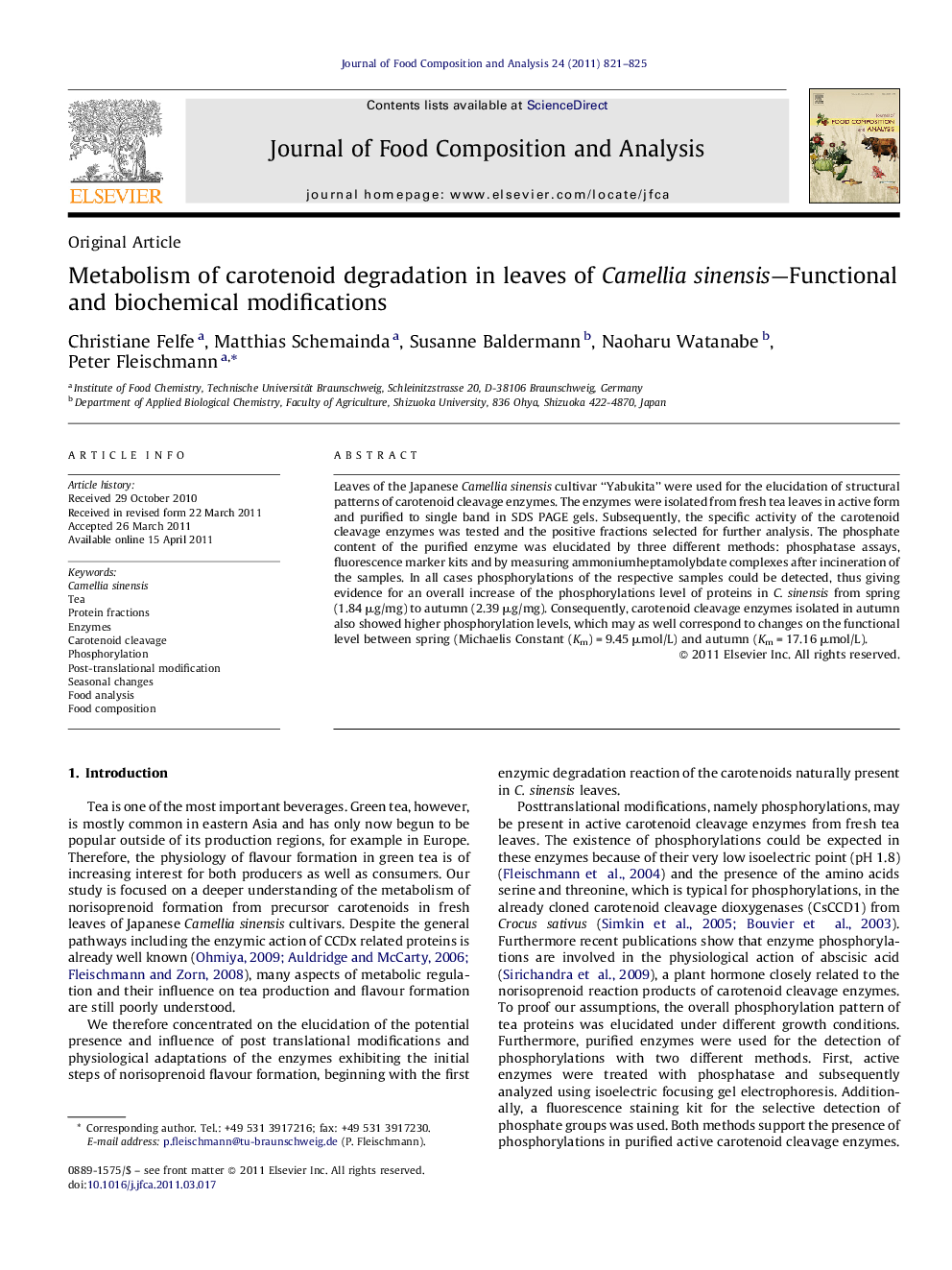| Article ID | Journal | Published Year | Pages | File Type |
|---|---|---|---|---|
| 10552852 | Journal of Food Composition and Analysis | 2011 | 5 Pages |
Abstract
Leaves of the Japanese Camellia sinensis cultivar “Yabukita” were used for the elucidation of structural patterns of carotenoid cleavage enzymes. The enzymes were isolated from fresh tea leaves in active form and purified to single band in SDS PAGE gels. Subsequently, the specific activity of the carotenoid cleavage enzymes was tested and the positive fractions selected for further analysis. The phosphate content of the purified enzyme was elucidated by three different methods: phosphatase assays, fluorescence marker kits and by measuring ammoniumheptamolybdate complexes after incineration of the samples. In all cases phosphorylations of the respective samples could be detected, thus giving evidence for an overall increase of the phosphorylations level of proteins in C. sinensis from spring (1.84 μg/mg) to autumn (2.39 μg/mg). Consequently, carotenoid cleavage enzymes isolated in autumn also showed higher phosphorylation levels, which may as well correspond to changes on the functional level between spring (Michaelis Constant (Km) = 9.45 μmol/L) and autumn (Km = 17.16 μmol/L).
Keywords
Related Topics
Physical Sciences and Engineering
Chemistry
Analytical Chemistry
Authors
Christiane Felfe, Matthias Schemainda, Susanne Baldermann, Naoharu Watanabe, Peter Fleischmann,
